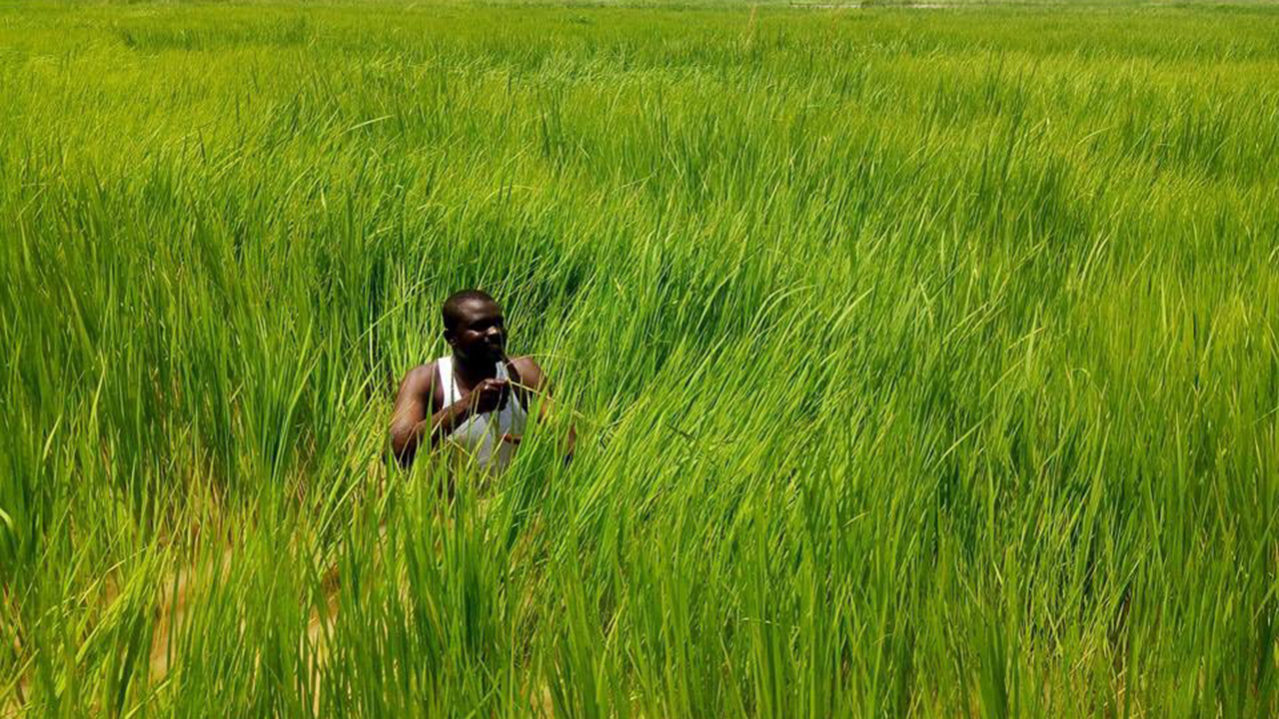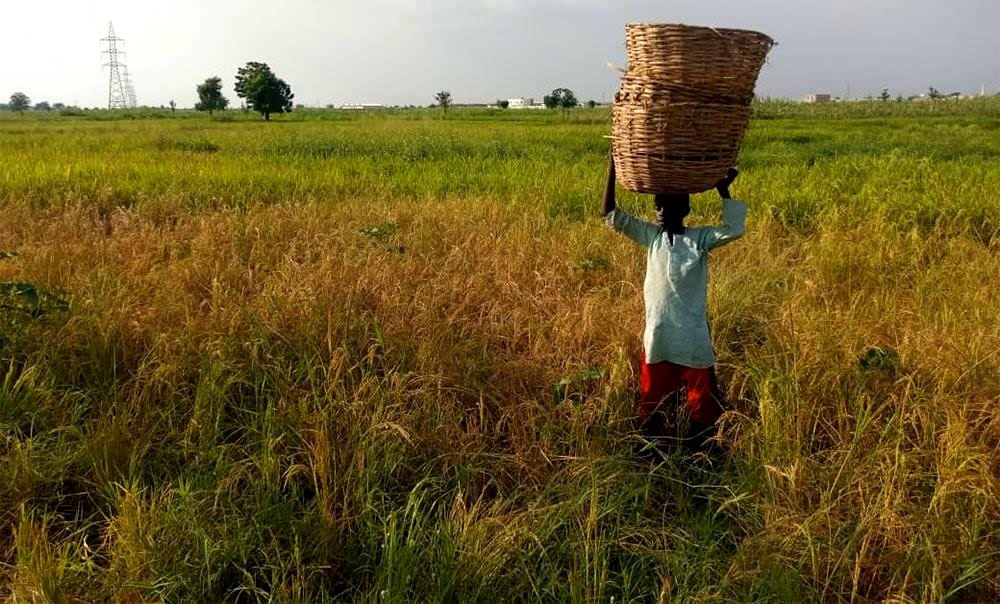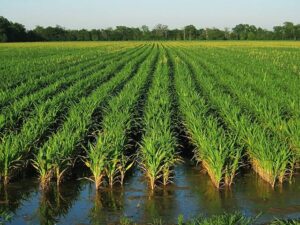
The golden soil of Afikpo, Ebonyi State in Southeast Nigeria, is a clay-loamy soil renowned for cultivating the traditional Abakaliki rice. The rice is typically grown without artificial irrigation as annual rainfall is greater than 1500 mm, the land is fairly levelled, and the soil is clayed.
Speaking highly of the quality of Abakaliki rice, Mr Benjamin Nworie of ThisDay Live, reported on August 17, 2016, that no visitor would come to Ebonyi state without testifying to the high quality of Abakaliki rice compared with other rice produced locally and internationally.
“The Abakaliki rice is blessed with so many nutritional values, linked to the salinity in the land of Abakaliki rice mill. It is even better and graded higher by those that know its nutritional values.”
Coherently, the economic importance and history of Afikpo rice farmers date back to 1945 when approximately 600 acres were mapped out for rice cultivation in Abakaliki Division and 70 in Afikpo Division.
By 1954, there were about 18,000 acres in Abakaliki and 11,300 in Afikpo, and by 1959, Abakaliki had reached 20,000 acres with 95 rice mills, while production in Afikpo was some 18,000 acres with 27 mills. In 1956, the first Abakaliki Rice Mill Owners Association was organised (NAE, AIPROF 5/1/47,1955).
Climate change drives closer home
Now, decades down the road of agriculture, Afikpo rice farmers are bewildered by the inconsistency of the rainfall and the adverse impacts of climate change.
A farmer, Francis Ukpabi, who lost almost half of his rice crop to a prolonged heatwave and inconsistent time of rainfall, decries how he no longer thinks about climate change as a future problem.
‘Francis’ farm lies north of Afikpo, in Ebonyi state, a governorate that has suffered several bouts of erratic rainfall in recent years. “We can no longer work the old-fashioned way of climate prediction and ignore climate change”, he said.
“Rice production is our major source of livelihood; earnings from the produce practically feed our families, clothe us, give our children the privilege of going to school, and access good health services,” he continued.
“Rain-fed agriculture has always been our custom where we cultivate rice in April when the heavy rain season is just beginning and harvest by July/August just before the season ends. But recently, the rain starts in January when we expect the harmattan, and this reduces the amount of rainfall our rice farm gets, consequently affecting the yields and harvest,” he added.
Several studies have shown that harmattan and good seed germination seems to be on the opposite side.
Harmattan is a season in the West African subcontinent that often occurs between the months of late November and early March.
It is characterised by dry and dusty wind, often with cold temperatures. This cold temperature has an overbearing effect on seed germination around this period. This effect is similar to the effect of early frost in western countries.
Impact on food systems
In Nigeria, agriculture is the primary source of food and employer of labour, employing about 60-70 per cent of the population. It is an n important sector of the economy and the source of raw materials used in the processing industries and a source of foreign exchange earnings for the country.

The impact of climate on agriculture in Nigeria has become more threatening to the sustainable development of socio-economic and agricultural activities of the nation as local farmers are seriously concerned about climatic elements because of their impact on food security, availability, stability, accessibility and utilisation.
Climate change in terms of increasing temperatures and uncertainty of precipitation is expected to adversely affect agriculture production, especially the rain-fed agriculture practised in Nigeria.
The Intergovernmental Panel on Climate Change (IPCC) estimates for 2050 show that changing rainfall patterns and increasing temperature, along with flooding, droughts and salinity, will possibly decline rice and wheat production by 8 and 23 per cent against the 1990 baseline production value.
According to the warnings of the Food and Agricultural Organisation of the United Nations (FAO), climate change affects agricultural productivity due to changing patterns of rainfall, drought, floods, and the spread of pests and diseases.
Undoubtedly, the world’s food security is under pressure due to climate change with different biotic and abiotic stresses.
Tackling climate change
Climate change is unswervingly influencing human survival through its agricultural impacts by higher temperatures, droughts, floods, soil erosion and rainfall variations affecting the food security of the globe.
There is a need to put in place proper structures aimed at mitigating the rainfall variability and improving our climate adaptation solutions. Such measures would include: strengthening the knowledge base and developing information and monitoring systems for regions prone to drought, flood and salinity in climate change adaptation planning;

adjusting the sowing/transplanting period corresponding to future climate trends as a means to alleviate the risk of climate change in rainfed rice production; developing more awareness campaigns on mitigation measures for rainfall variability specifically and climate change in general and training on soil and water management in rice production is essential in averting the adverse effect of rainfall variability on national rice yield.
The situation of Afikpo rice farmers analysed above is very common amongst other farmers in the global south and as the UN Chief, Secretary-General António Guterres, rightly put, “we must go into emergency mode against the climate crisis. We need an avalanche of action.”











